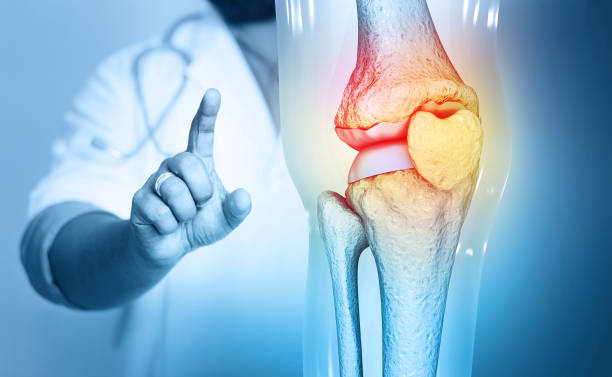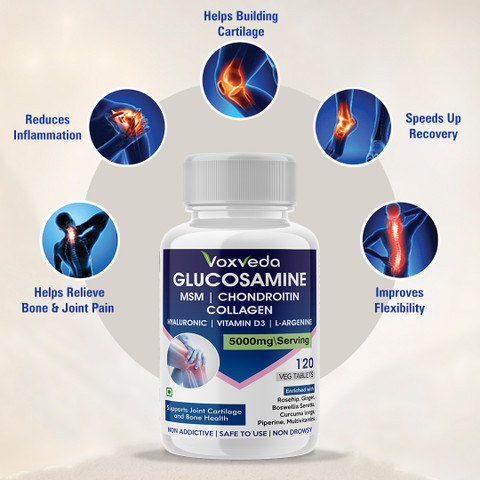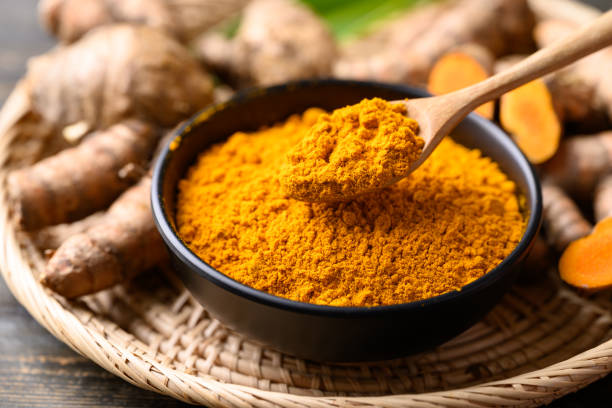
Joint health is about more than pain relief — it's about restoring mobility, preserving cartilage, and protecting the synovial environment so you can stay active longer. This article explores time-tested botanicals and modern compounds that support that process from multiple biochemical angles.
Why joints fail — a quick primer
Cartilage breakdown, low-grade inflammation, wear-and-tear, metabolic stress and impaired synovial lubrication combine over years to produce joint pain. Inflammatory signaling (IL-1β, TNF-α, NF-κB), oxidative damage, and matrix metalloproteinases (MMPs) that chew up collagen and proteoglycans accelerate degeneration. The good news: many natural compounds interfere with these pathways or provide raw materials for repair.
Below we present five leading compounds, each addressing a different aspect of joint biology: structure, inflammation, lubrication, cellular health, and biochemical drivers of pain.
1) Glucosamine & Chondroitin — the structural rebuilders

Mechanism: Glucosamine is a primary building block for glycosaminoglycans and proteoglycans — essential components of articular cartilage. Chondroitin sulfate binds water and contributes to cartilage resilience and shock absorption. Together they support matrix synthesis and reduce degradative enzyme activity.
Evidence snapshot
Large randomized trials and meta-analyses show modest-to-moderate symptomatic benefit in osteoarthritis — particularly glucosamine sulfate (not glucosamine hydrochloride) and pharmaceutical-grade chondroitin. Some long-term trials suggest slower radiographic progression when taken continuously.
Dosing & form
1,500 mg/day (single or split dose)
800–1,200 mg/day
Minimum 6–12 weeks; best effect at 3–6 months
Clinical tips
- Prefer phased, pharmaceutical-grade glucosamine sulfate when possible — it's better studied.
- Vegan glucosamine (fermented) is an option for shellfish-allergic users.
- Combine with vitamin C and collagen peptides to support matrix synthesis.
2) Curcumin — the golden anti-inflammatory



Mechanism: Curcumin modulates inflammatory signaling (NF-κB, COX-2, LOX), reduces pro-inflammatory cytokines, and acts as a potent antioxidant that protects cartilage from oxidative insult.
Clinical notes
High-bioavailability formulations (e.g., curcumin-phospholipid complexes, micelles, or with piperine) show superior clinical efficacy. Trials report reductions in pain and inflammatory biomarkers comparable to NSAIDs in some head-to-head paths, with better GI tolerability.
Dosing
500–1,000 mg/day (standardized curcumin, bioenhanced)
1,000–2,000 mg/day split doses (under clinician oversight)
Add piperine 5–10 mg if product omits bioenhancement
Synergy & combinations
Curcumin pairs well with omega-3s and Boswellia for layered anti-inflammatory coverage. For patients on blood thinners, consult a clinician before combining curcumin with anticoagulant medications.
3) Omega-3 Fatty Acids (EPA & DHA) — inflammation's natural brake



Mechanism: EPA and DHA shift eicosanoid production away from pro-inflammatory prostaglandins and leukotrienes toward resolving mediators (resolvins, protectins). The net effect is lower sustained inflammation and improved synovial fluid quality.
Evidence and use
Long-term omega-3 use reduces morning stiffness and pain in inflammatory arthritis and lowers NSAID requirements in many patients. The joint-lubricating benefits are also valuable for cartilage comfort and athletic recovery.
Dosing
500–1,000 mg/day combined EPA+DHA
2,000–3,000 mg/day combined EPA+DHA (under clinician oversight)
Algae-derived EPA/DHA (confirm EPA content)
4) Hyaluronic Acid — nature's lubricant


:max_bytes(150000):strip_icc()/VWH-Nutrition-Hyaluronic-Acid-abcf92948efd4c389f45d66e6901ae27.jpg)
Mechanism: HA retains water in the synovial space and improves viscoelasticity of the joint fluid — directly improving lubrication and shock absorption.
Clinical forms
- Viscosupplementation: intra-articular HA injections that provide months of symptomatic relief (orthopedic setting).
- Oral HA: emerging evidence shows modest pain/stiffness reduction after 8–12 weeks, likely via systemic increases in HA precursors.
Dosing
50–200 mg/day (varies by product)
Administered by clinician — single-course or series options depending on product
5) Boswellia serrata — the anti-leukotriene resin



Mechanism: Boswellic acids inhibit 5-lipoxygenase (5-LOX), blocking leukotriene synthesis — a pathway less targeted by NSAIDs but central to chronic inflammatory joint damage.
Clinical evidence
Randomized trials demonstrate Boswellia's ability to reduce pain and improve walking distance in osteoarthritis, with effect sizes approaching common NSAIDs but with fewer GI side effects.
Dosing & product selection
300–500 mg, 2–3x/day (65% boswellic acids preferred)
Combine with MSM, vitamin C and glucosamine for multi-pathway support
Practical stacks & protocols — how to combine these ingredients
Different goals need different stacks. Below are conservative, evidence-informed options to consider. Always consult a clinician if you are pregnant, nursing, on blood thinners, or using prescription medications.
Everyday joint maintenance (low-moderate symptoms)
Active recovery & anti-flare strategy
Comprehensive rebuild (moderate OA wanting structural support)
Stacking rules
- Introduce one ingredient at a time and allow 2–4 weeks for subjective signals before layering the next.
- Prefer third-party testing (COA) and standardized extracts (boswellic acids, curcuminoids, glucosamine sulfate).
- Monitor response and reduce or pause agents that cause GI upset or other side effects.
Safety, interactions & clinical caveats
Natural does not automatically mean harmless. Key interactions and cautions:
- Blood thinners: Omega-3s, curcumin and high-dose Boswellia may increase bleeding risk — consult before combining with warfarin or DOACs.
- Allergies: Traditional glucosamine often derived from shellfish — choose fermented or vegan glucosamine if allergic.
- Pregnancy & breastfeeding: Many botanical extracts lack pregnancy safety data — avoid unless advised by an OB/GYN.
- Drug interactions: Curcumin can modulate CYP enzymes in high doses; Boswellia and other botanicals may affect pharmacokinetics — check drug-specific interactions.
If you have moderate-to-severe disease, autoimmune inflammatory arthritis, or are on prescription immunomodulators, coordinate supplements with your rheumatologist.
FAQ — quick answers
How soon will I notice improvement?
Glucosamine/chondroitin: 6–12 weeks. Curcumin and Boswellia: days-to-weeks for pain reduction; fuller benefit often by 4–8 weeks. Omega-3s: weeks; injectables (HA) can deliver faster symptom relief in-office.
Can I take everything at once?
Yes — many users take multi-ingredient formulas safely, but start slowly to identify tolerance. Use clinician oversight if taking multiple high-dose anti-inflammatories or anticoagulants.
Should I measure biomarkers?
For chronic disease monitoring, consider CRP, lipid profile (if using high-dose omega-3), liver enzymes (if using high-dose curcumin), and baseline joint imaging if clinically warranted.
Selected references & further reading
- Systematic reviews and RCTs on glucosamine/chondroitin in osteoarthritis (look for pharmaceutical-grade glucosamine sulfate data).
- Meta-analyses comparing curcumin vs NSAIDs for inflammatory pain, and studies on enhanced-bioavailability formulations.
- Clinical evidence for omega-3s reducing morning stiffness in rheumatoid arthritis and lowering NSAID requirements.
- Orthopedics literature on hyaluronic acid viscosupplementation outcomes and oral HA pilot trials.
- Randomized trials of Boswellia serrata extracts showing significant pain and mobility benefits.
If you'd like, I can generate a formatted bibliography with DOI links (APA/Harvard/Chicago) for publication.
Purchase options (Nootropics Depot & Amazon)
Below are curated search links for each compound — replace these with affiliate links when ready.
Quality: look for sulfate, not hydrochloride; chondroitin standardized to sulfate content.
Nootropics Depot AmazonChoose formulations with phospholipids, micelles, or piperine.
Nootropics Depot AmazonPrefer third-party tested fish oil or algae oil with EPA/DHA certificate.
Nootropics Depot AmazonOral HA may be lower-dose; injectable options are clinician-delivered.
Nootropics Depot AmazonTip: prefer products that publish a Certificate of Analysis (COA) for purity and potency — this is especially important for botanicals.